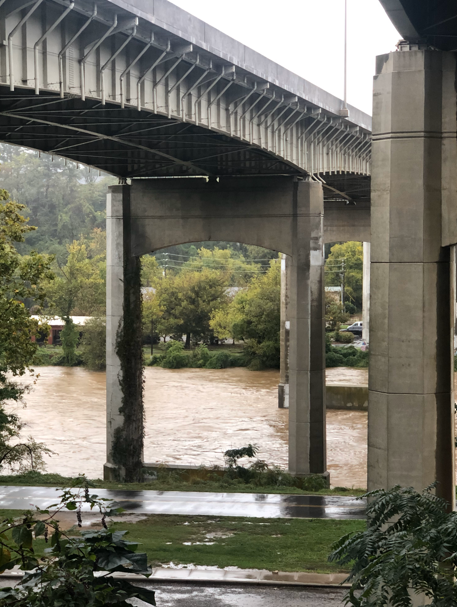ASHEVILLE, N.C. (828newsNOW) — Buncombe County officials are making resources available to help residents looking to evacuate. It’s anticipated that 15,000 individual residences may be impacted, a news release from the county said.
As the local state of emergency continues, several emergency shelters have opened.
President Joe Biden on Thursday approved an Emergency Declaration for North Carolina. That means federal disaster assistance is available to supplement response efforts because of emergency conditions resulting from Hurricane Helene beginning Sept. 24 and continuing.
The National Weather Service on Thursday warned that the rains that fell Wednesday and Thursday combined with those from Hurricane Helene would result in “one of the most significant weather events to happen in the western portions of the area in the modern era.”
Check your address
Click here to see if your residence falls in the floodplain. Please note this tool is not a confirmation that a property will not flood, it simply shows that it is not historically prone to flooding.
Where to find shelter
Shelters are now open at First Baptist Church in Swannanoa and Trinity Baptist in West Asheville. Buncombe County is working with Henderson County and other partners to establish larger shelters and also shelters that can help community members with medical devices like home ventilators and other specialized equipment.
Explore Asheville has worked with local hotels to make rooms available for residents who are seeking shelter from the storm. Those rates are available here.
Residents, businesses, visitors, and employees in Fletcher and Biltmore Village near the rivers should self-evacuate before anticipated crests overnight Friday and into Saturday morning.
Code Purple sheltering is available through ABCCM for unhoused residents, and transportation on ART is free to Code Purple shelters.
Click here to see useful numbers for roads and utilities. For non-emergency support, call 828-250-6650.
Federal Emergency Declaration
The president’s action authorizes FEMA to coordinate all disaster relief efforts to alleviate the hardship and suffering caused by the emergency on the local population and to provide appropriate assistance to save lives, to protect property, public health and safety and to lessen or avert the threat of a catastrophe.
Federal funding is available to state, tribal and eligible local governments and certain private nonprofit organizations on a cost-sharing basis for emergency protective measures including direct federal assistance for Buncombe, Burke, Cherokee, Clay, Graham, Haywood, Henderson, Jackson, Macon, Madison, McDowell, Mitchell, Polk, Rutherford, Swain, Transylvania and Yancey counties and the Eastern Band of Cherokee Indians.
Federal funding is also available for emergency protective measures limited to direct federal assistance and reimbursement for mass care including evacuation and shelter support for Alexander, Alleghany, Ashe, Avery, Caldwell, Catawba, Cleveland, Gaston, Iredell, Lincoln, Watauga and Wilkes counties.
Finally, federal funding is also available for emergency protective measures limited to direct federal assistance for Alamance, Anson, Beaufort, Bertie, Bladen, Brunswick, Cabarrus, Camden, Carteret, Caswell, Chatham, Chowan, Columbus, Craven, Cumberland, Currituck, Dare, Davidson, Davie, Duplin, Durham, Edgecombe, Forsyth, Franklin, Gates, Granville, Greene, Guilford, Halifax, Harnett, Hertford, Hoke, Hyde, Johnston, Jones, Lee, Lenoir, Martin, Mecklenburg, Montgomery, Moore, Nash, New Hanover, Northampton, Onslow, Orange, Pamlico, Pasquotank, Pender, Perquimans, Person, Pitt, Randolph, Richmond, Robeson, Rockingham, Rowan, Sampson, Scotland, Stanly, Stokes, Surry, Tyrrell, Union, Vance, Wake, Warren, Washington, Wayne, Wilson and Yadkin counties.


